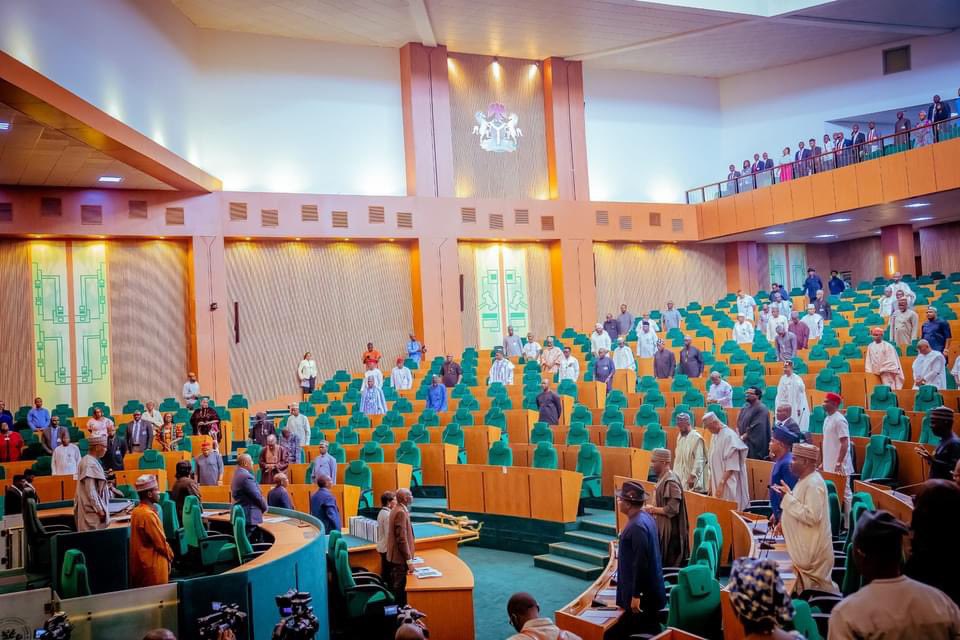A bill for an Act to provide legal framework for free internet access programme in selected public places in Nigeria and for related matters has scaled second reading in the House of Representatives.
The bill which seeks to ensure free access to internet services for the underserved and disadvantage citizens especially in rural areas was sponsored by Abubakar Kusada at plenary on Thursday.
Moving the motion earlier, Mr Kusada recalled that the bill passed first reading on 3 October, 2024.
He said that the bill seeks to establish a clear and sustainable legal foundation for the provision of free internet services in selected public locations across the country.
He said that as the digital connectivity becomes increasingly vital to national development, the bill seeks to institutionalise and regulate free internet access programmes that will enhance access to internet.
“This bill provides a structure that enables collaboration between government, institutions and private sector partners while ensuring the security, accessibility and responsible use of public internet infrastructure.
Article Page with Financial Support Promotion
Nigerians need credible journalism. Help us report it.
Support journalism driven by facts, created by Nigerians for Nigerians. Our thorough, researched reporting relies on the support of readers like you.
Help us maintain free and accessible news for all with a small donation.
Every contribution guarantees that we can keep delivering important stories —no paywalls, just quality journalism.
SUPPORT NOW
x
Do this later
“The need for this legislation cannot be overstated, in today’s global landscape, internet access is not just a communication tool. It is an essential resource for education, employment, innovation and civic participation.
“Unfortunately, millions of Nigerians, especially in rural and low-income communities, remain digitally excluded due to high data costs, limited infrastructure and lack of public access points.
“This digital divide not only perpetuates inequality but also undermines national productivity and social mobility.
“Providing internet services in public places offers a powerful way to bridge this gap, students will be able to access educational resources, conduct research and participate in online learning.
“Job seekers could apply for opportunities, take online courses and connect with professional networks.
“Small businesses owners and entrepreneurs will have a platform to promote their goods and services, engage in digital marketing and expand their customer base,” he said.
Speaking against the bill, Kingsley Chinda (PDP-Rivers), said that he does not feel very comfortable with the provisions of the bill.
He said that internet provision has been privatised which implies that governments will need to pay for the services.
Mr Chinda argued that provision of free internet should not have a legal framework to make it compulsory, but should be more of a policy.
“Once we have a law such as this, what it means is that if government fails to provide it, government is going against the law that we have made.
“If this has come as a way of motion to ask that free internet should be provided in certain public places, it would have been better.
“So I will pray that the sponsor looks at it again, to bring this by way of motion, rather than passing a bill into law, making it compulsory for free internet provision,” he said.
Also speaking, Wole Oke (APC-Osun), said that Internet provision had been concessioned to service providers and it came with a cost.
He said that pubic places such as airport, parks, gardens among others in many countries and in some parts of Nigeria, enjoy free access to internet, but someone bears the cost on behalf of users.
READ ALSO: Constitution Review: Senate panel receives 49 new states, LGAs requests, begins public hearings
“+#÷3Similarly, if you go to some high institutions, both within Nigeria and outside this country, people also enjoy free internet services. But it comes at a cost.
“So it is a good, noble idea but the issue is this: Who bears this cost? Who is going to pay? Yes, public places, parks, where you enjoy free internet services.
“But I can tell you that the costs of such are already built into certain bills. When you enter a park, you pay and when you pay, you enjoy free internet.
“You might think it is free, but actually somebody is bearing the cost to promote their businesses,” he said.
On his part, Dennis Agbo (LP-Enugu), suggested that the cost should be shared among the internet providers and the government.
He said that it could be subsidised to ensure access to internet becomes available to people even at such rural places.
In his ruling, the Speaker of the house, Abbas Tajudeen, referred the bill to the relevant committees for further legislative consideration.
(NAN)
Support PREMIUM TIMES’ journalism of integrity and credibility
At Premium Times, we firmly believe in the importance of high-quality journalism. Recognizing that not everyone can afford costly news subscriptions, we are dedicated to delivering meticulously researched, fact-checked news that remains freely accessible to all.
Whether you turn to Premium Times for daily updates, in-depth investigations into pressing national issues, or entertaining trending stories, we value your readership.
It’s essential to acknowledge that news production incurs expenses, and we take pride in never placing our stories behind a prohibitive paywall.
Would you consider supporting us with a modest contribution on a monthly basis to help maintain our commitment to free, accessible news?
TEXT AD: Call Willie – +2348098788999



